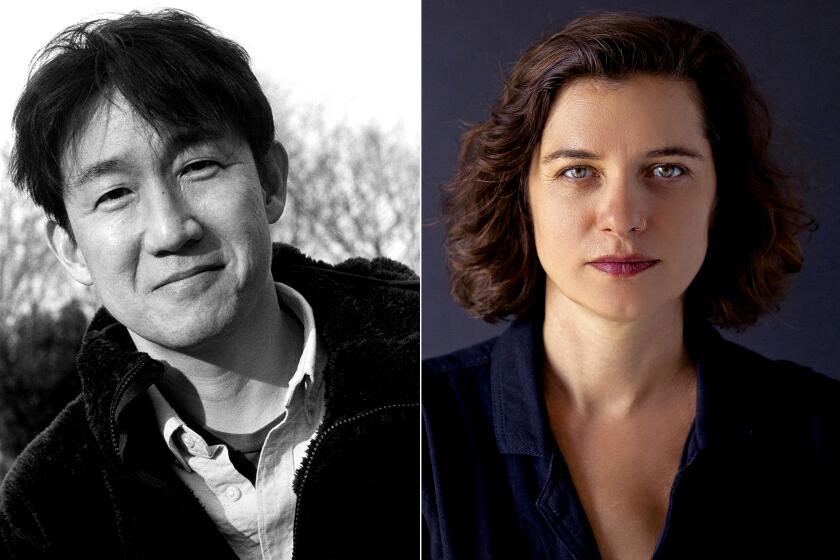Immigration agency working to fix visa denials to artists, others
The nation’s immigration chief has launched a effort to quell the outcry from Hollywood and the performing arts community about a spike in visa denials, processing delays and requests for evidence to support their petitions to bring in leading foreign artists for U.S. performances.
In the last year, immigration attorneys across the nation have loudly complained about mounting roadblocks for performance visas from the California service center, which processes petitions for so-called O and P visas for artists and researchers of extraordinary ability.
The Skirball Cultural Center in Los Angeles had to cancel scheduled performances last year of an Argentine music group because California immigration officials challenged whether its fusion of Jewish klezmer music and tango met the requirement to be “culturally unique.”
In other cases, California officials also challenged visa petitions in the last year that aimed to bring in an Indian group to perform at a California festival honoring the Hindu goddess Durga, a Chicago opera company seeking to bring in a Spanish singer and an African musical group.
“In the past year and a half, what we’ve seen is petitions that previously and typically were approved are being denied,” said Heather Noonan of the League of American Orchestras. “It impacts the whole range of arts disciplines. The cumulative effect makes the process of engaging international talent very challenging.”
Alejandro Mayorkas, appointed to head U.S. Citizenship and Immigration Services last year, said he was still investigating the reasons for the increased problems. But he acknowledged that U.S. immigration data back up the complaints.
The California service center’s denial rates for O visas, which apply to individuals, increased from 9.6% in the 2008 fiscal year to 19.6% this year. Denial rates for P visas, which apply to groups, jumped from 11.1% in 2008 to 26.8% this year. Requests for evidence also grew, from 16.2% of cases in 2008 to 37.5% for individual visas and from 21% to 44.3 % for group visas during that same period.
In response to the outcry, which has reached Congress and the White House, Mayorkas has pledged speedier processing times and greater consistency in judging the visa petitions. He has ordered a broad review of visa guidelines, pledged to process visa petitions in 14 days and vowed to increase staff training. He has also launched a project to investigate the requests for evidence.
In addition, Mayorkas last month replaced the top two officials at the California service center. But he declined to comment on the personnel changes and whether they were related to the outcry.
“We’ve been very focused on listening, learning and responding,” Mayorkas said. “The O and P visas were established by Congress with the understanding that the introduction into this country of talent from all over the world brings needed and desired diversity to our artistic and cultural landscape. We should adjudicate the petitions with that intention and spirit in mind.”
Several immigration experts say the changes have already made a difference. Processing times are speeding up, and denials and requests for evidence seem to be declining, they say.
“Are there problems? Yes. Are they being addressed? Yes,” said Thomas Barnett, international director for the La Jolla-based Scripps Research Institute, which frequently petitions to bring in leading biomedical researchers.
Slow processing times had been a major concern. Chad Smith, the Los Angeles Philharmonic’s vice president of artistic planning, said the delays began after the 9/11 terrorist attacks but had worsened in recent years, forcing his organization to pay an extra $1,000 per case for expedited visa processing.
“The need for premium processing greatly impacted our bottom line,” he said.
Immigration experts also questioned whether California officials were sufficiently trained to competently evaluate their visa petitions.
Barnett, for instance, said immigration officials have challenged visa petitions from his world-renowned organization by asking for proof that Scripps is an educational nonprofit organization.
“Twenty seconds on the Internet could have shown you that,” Barnett said. “Is this just ignorance?”
Immigration attorneys have also complained that they have been repeatedly asked to provide evidence to meet standards that are not required by law.
For example, California officials asked for proof that an Indian dance group had been together for at least a year and that an African musical group would perform only at “culturally unique” venues that did not include its scheduled appearances at universities, said Andi Floyd, a legal assistant who worked on the petitions for Virginia immigration attorney Jonathan Ginsburg. Attorneys had to point out that neither requirement was in the visa law; officials eventually approved the African petition but have not yet acted on the Indian one, Floyd said.
Mayorkas said he was determined to “get it right and get it fast.”
“The community deserves consistency,” he said. “These are our customers, and we are committed to improving customer service.”
teresa.watanabe@latimes.com
More to Read
The biggest entertainment stories
Get our big stories about Hollywood, film, television, music, arts, culture and more right in your inbox as soon as they publish.
You may occasionally receive promotional content from the Los Angeles Times.







